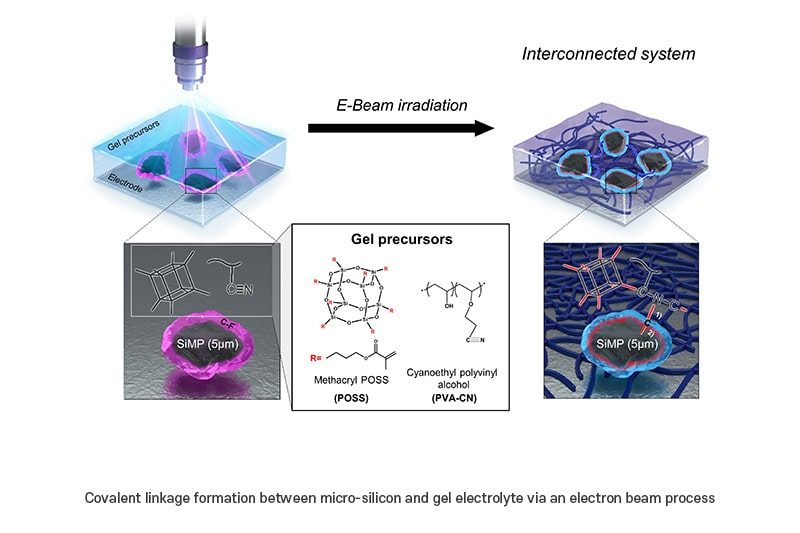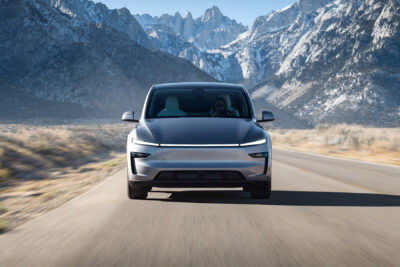POSTECH researchers to develop next-gen li-ion battery system
A research team from South Korea’s Pohang University of Science and Technology (POSTECH) is working on a next-generation lithium-ion battery system with a high energy density based on silicon, which should help electric cars achieve a range of 1,000 kilometres. The research project focuses on gel polymer electrolytes and micro-silicon particles.
According to the project’s initiators, the use of silicon as a battery material presents innate challenges, as the material expands by over three times during charging before contracting back to its original size during the discharge, significantly impacting battery efficiency. Using nano-sized silicon (10-9m) partially addresses the issue, but the sophisticated production process is complex and astronomically expensive, making it a challenging budget proposition. Further, the researchers have found that micro-sized silicon (10-6m) is “superbly practical in terms of cost and energy density.”
The scientists at the university now claim to have found a way to use silicon in micro-size. To do this, they use a gel polymer electrolyte, which is said to guarantee greater stability compared to liquid electrolytes thanks to its elastic structure. Also, the research team used an electron beam to form covalent bonds between micro-silicon particles and gel electrolytes. These bonds served to dissipate internal stresses caused by the volume expansion of the silicon, thereby improving structural stability.
As a result, the South Korean research team stated that the battery has high stability and a similar ionic conductivity to conventional batteries with liquid electrolytes, while the energy density has been improved by around 40%. In addition, the manufacturing process is said to be “uncomplicated”. “We used a micro-silicon anode, yet, we have a stable battery. This research brings us closer to a real high-energy-density lithium-ion battery system,” explained Professor Soojin Park.





1 Comment